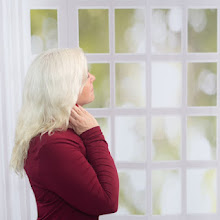It is possible! It is something I have learned to do after living with depression for many years and something I believe you can do too. Welcome to my blog! I am here to talk about depression and what you can do about it.
First of all, know that you are not alone!
Depression is a common, isolating condition shared by many. Yes, you heard me correctly. It makes us feel so isolated and alone, yet it is such a common condition. If you are out and near other people, stop, look around. Most likely, at least one other person is dealing with sadness and depression. You are not alone in your isolation. Talk about an oxymoron! If that isn't strange enough, some very successful people also share this condition: rock stars, artists, entrepreneurs. We can imagine a person living in poverty with few friends being sad. But we are surprised when we learn that a successful person with a family also has depression. This condition affects people of all ages and all walks of life: doctors, musicians, engineers, students, entrepreneurs, men, women, teens and even children. So, what is it about this condition that can affect anyone at any time? Something even those of us who have had it a long time forget-it IS a condition, just like asthma or celiac disease. We are not surprised if we find out a popular actress has celiac disease. We might just be sympathetic that she has it and hope her well. But if we find out she has depression, we may be stunned or surprised.
Part of the problem is that depression is a unique condition that overlaps our thoughts and our behavior. Look at the symptoms of depression:
- Persistent sad, anxious, or “empty” mood
- Feelings of hopelessness, or pessimism
- Feelings of irritability, frustration, or restlessness
- Feelings of guilt, worthlessness, or helplessness
- Loss of interest or pleasure in hobbies and activities
- Decreased energy, fatigue, or feeling "slowed down"
- Difficulty concentrating, remembering, or making decisions
- Difficulty sleeping, early morning awakening, or oversleeping
- Changes in appetite or unplanned weight changes
- Thoughts of death or suicide, or suicide attempts
- Aches or pains, headaches, cramps, or digestive problems without a clear physical cause that do not ease even with treatment*
Aside from the last bullet, the other symptoms all have to do with our thoughts and behaviors. And, except for the last two bullets, these thoughts affect every person at some point in their lives. So, that makes it complicated. How does someone, particularly someone who doesn’t know us very well, know if we have depression or are just having a bad day? They don’t. If they are trying to cheer us up, they might wonder why we don’t respond and just snap out of it. (One of my least favorite phrases.). But depression is a brain disorder, not a bad day.
Read that again. It is a brain disorder. It is not acting up, vying for attention or a form of weakness. It is a disorder. It is not something that you can just snap out of.
So, what is the difference between a bad day vs. a diagnosis of depression? It is having a variety of symptoms, having them for weeks, and having them significantly affect your life. You may not be able to pinpoint a specific reason for your symptoms. It is not unusual to wonder why you’re feeling anxious or sad for no apparent reason. The symptoms don’t always seem to match what is going on in your life. You might have a good day and yet still experience sadness or anxiety.
The official definition: It is a common but serious mood disorder that needs treatment. It causes severe symptoms that affect how you feel, think, and handle daily activities, such as sleeping, eating, and working.
I mention sadness the most as it tends to be the prevailing symptom of depression. But if you look at the list of symptoms above, it is not necessarily the only one. You may just lose interest in activities that you used to enjoy. You may have feelings of worthlessness and have trouble eating. If you have any of the symptoms above that don’t go away or that significantly affect your life, visit a professional for diagnosis and treatment.
As difficult as depression may be to live with, there is hope.
There are treatments that can, and do, help. The good news is that many of the treatment options available do not require a prescription. Treatment is like putting together a puzzle, you need to find what works for you. And once you do, you will start to feel better. It involves patience and you may need to try a few different treatments, but it is doable. More treatment options are being evaluated all the time.In the coming weeks, I will be discussing what can help you live a fulfilling life even with a diagnosis of depression. We will be going over a variety of topics related to depression such as diagnosis, causes, treatment options and success stories.
You can learn to thrive, not just survive, with depression!
*Facts and info obtained from the National Institutes of Health or National Institute of Mental Health.




Comments
Post a Comment